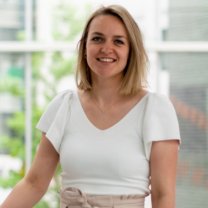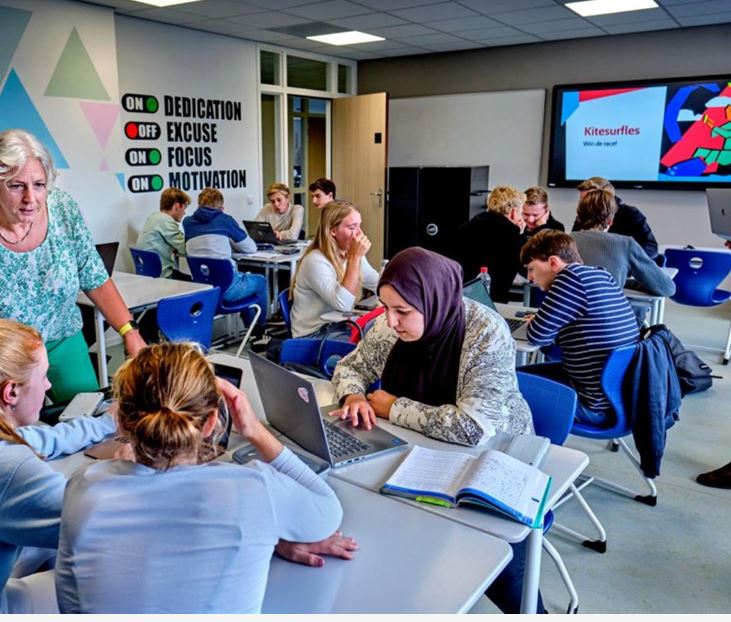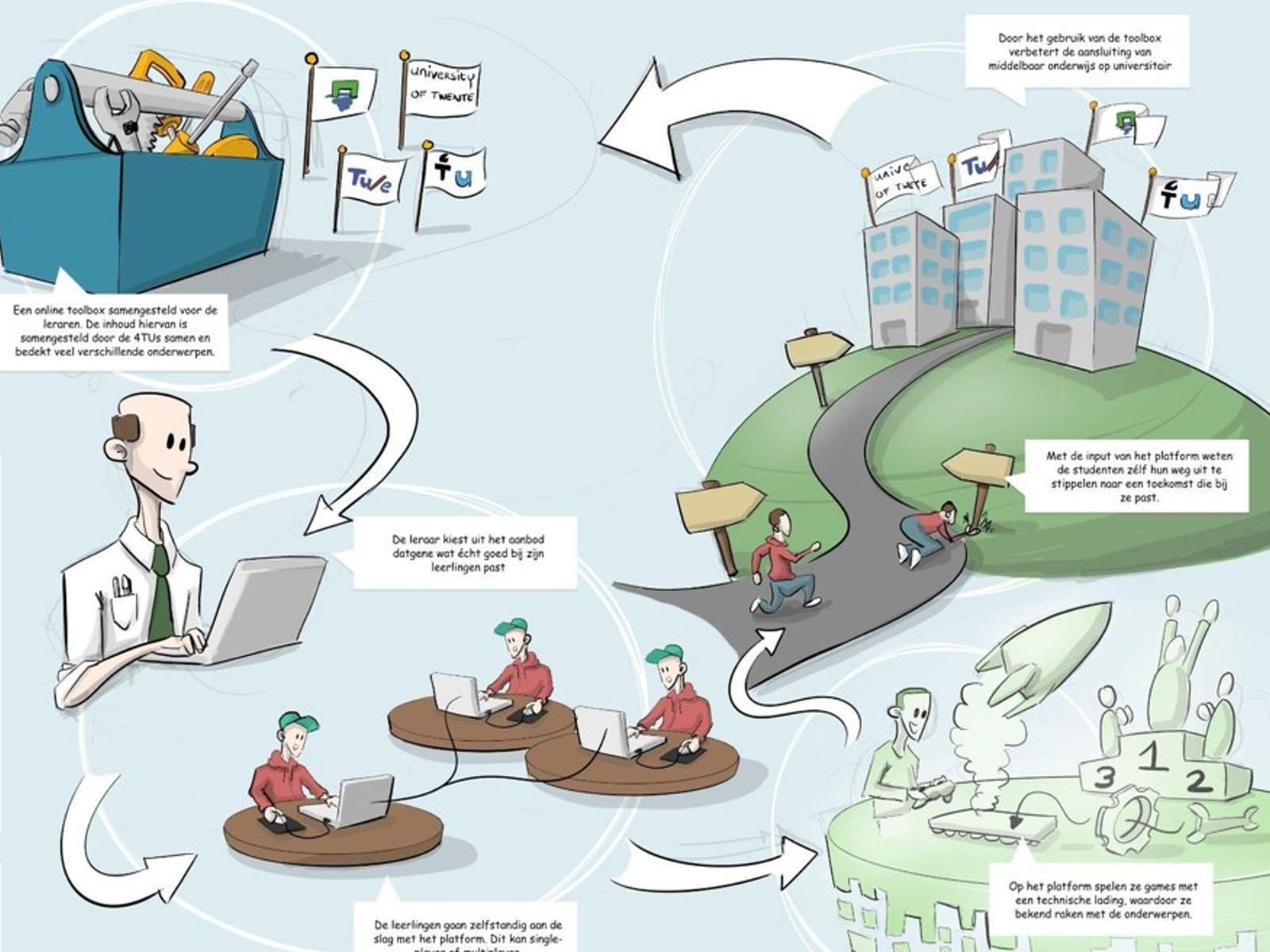An interview about the ambitions of the 4TU.VO Platform - the joint education platform of the 4 universities of technology
The 4TU.VO platform has received funding from the 4TU Federation until December 2025 to build further on an online education platform for secondary education. 4TU talked with Jamila de Jong (WUR) and Silke Heesen (UT) from the working group about the status of the platform and what plans they want to realise with the 4TU funding.
Congratulations! How happy are you guys with this contribution?
Jamila: Yes extremely happy! This funding will help us build up further the platform. We can use the funding to pay for the coordination of our working group, the appointment of two VO teachers and the realisation and design of the teaching modules. 4TU plans to continue funding this programme beyond 2025, as careful monitoring of the results and implementation of this type of initiative in primary and secondary education takes time and the effects can only be seen in the longer term.
For those readers not yet familiar with the platform, what exactly is the 4TU.VO platform?
Jamila: It is a platform for secondary education (VO) that brings together the educational knowledge, research and materials of the four TUs. Secondary school students - initially students from 4 vwo - can already experience the research and design features of engineering education at TUs through teaching modules.
We started as a pilot from the pre-university programmes of the four TUs.
The four TUs all believed that more attention should be paid to engineering skills. Teaching those skills - the mix of analysis with the head and design with head and hands - pays off for the student over the long term, and works better than short-term brush-up programmes before school exams.
This makes it a real in-depth investment. The pupils eventually becomes a student, and you want him or her to end up in the most appropriate discipline. We share this mission as pre-university teams, so it was a logical step to work together on this. Almost two years on, we can now confirm that offering engineering education via an online platform is an achievable ambition. We will now pursue that in a longer-term collaboration.
Silke: Actually, there was a desire to build our own platform, but that turned out to be far too complicated and time-consuming. We have since decided to use the existing teacher platform LessonUp.
What are the objectives of the platform?
Jamila: Our first objective is to develop high-quality modules that fit the VO curriculum. We look at what topics are already covered anyway, and then bring in engineering skills.
Jamila: The 4TU Federation has provided us with two additional goals in return for its contribution, i.e. ensuring higher enrolment numbers in our programmes and less dropouts.
Can you influence those two things ?
Jamila: That's difficult. It is a sum of many different factors that play a role in a student's study success. Our teaching modules are a small part of that and do not offer a total solution. We know from experience with the Deltaplan Bèta Techniek (2005-2015) that experience with STEM (Science Technology Engineering and Mathematics) materials motivates pupils to choose a programme in STEM. We also know that having a good idea about a study helps prevent dropouts. Our teaching modules are a factor in this.
Silke: You could say that our modules contribute to more awareness of what is available at universities. They become aware of the existence of master classes you can attend at a university or that you can visit a guided tour or open day to find out more about study disciplines. In this way, we focus on both the quantity and quality of the influx.
What are the challenges of bringing engineering into the classroom?
Silke: It is very important to involve both the teacher and the student. We have included both target groups in the analysis phase as well as currently in the implementation phase where the modules will be tested.
Jamila: The engineering approach that is so obvious to us is not for all VO teachers. You will have to engage them in that. Once convinced of the added value, they pass on their enthusiasm to other subject teachers in their team and the modules become more widely known. Furthermore, each TU has contacts in its own region. You first introduce the modules in a small regional context and if those lecturers are enthusiastic, they will automatically become ambassadors of the modules and the communication about them will work like a flywheel.
Why is structural funding important for the platform?
Jamila: Creating education takes time. The effect cannot be measured immediately tomorrow. If you invest now with modules in the first three years of secondary education, you will have to continue for 10 years to conclude how useful it has been.
Have you set yourselves targets?
Silke: Yes the ambition is to finish 20-30 modules before the summer and eventually we want to deliver 150 in total. With the current working group containing plenty of specialist expertise from the four technical universities and the support of both students and teachers, this is not an unrealistic target.
What is the success of the modules?
Silke: They have a clear head and tail and are interactive, i.e. they encourage cooperation between different team members. This is also reflected in the work of an engineer. We also cover different themes so there is always a module in between that interests the student.
For instance, we have a module called 'Blue Energy'. In it, you have to design a hydropower plant. This involves a lot more than just the hard technology. That power plant has to be located somewhere, so you have to deal with landscape management, politics, and in many cases ethical dilemmas such as environment, privacy and health. By showing all these different facets of engineering, you aim to broaden the perception that schoolchildren have about technology and engineers.
Why do you focus primarily on 4 vwo?
Jamila: These are students who have already chosen a technical profile. With our modules you can achieve that they might choose a technical study programme. Students from 5 vwo are already too busy preparing for their final exams, so then you will often already be too late. Students of 3 vwo are certainly also an interesting target group, which we are holding back for the next phase. After this phase, we will also explore options for vmbo, havo and even primary education.
What is the benefit of doing this together with the 4 TU’s?
Jamila: United in an association, you can do more when it comes to content and networking. We work together with the Vereniging van Hogescholen, trade unions, Stichting Leerplan Ontwikkeling, Sterk Techniek Onderwijs, industry and organisations such as Platform Talent voor Technologie on the same mission, which is to draw attention to beta technology profiles, and in doing so boost the enrolment into STEM programmes in higher education.
When one of our universities joins a company like ASML or the Growth Fund at the table, you don't present yourself as one university but rather speak for the four universities at the same time. At such moments, you notice that 4TU is a strong brand and that if you support things from this partnership, it really has an effect.
What would the ideal secondary school curriculum look like if you were in charge?
Silke: My ideal curriculum consists of a mix of knowledge and skills. These go hand in hand. It's not just about gaining knowledge, but also applying that knowledge where you learn to use analytical - and design skills.
Jamila: I agree with Silke that this combination is important. It's a balance between subject knowledge and subject skills, both are important. Unfortunately, we observe that within the existing curriculum, there is little room for those cross-curricular skills. And there is also little room for interdisciplinary skills. How do you make the connection between one subject and other parts of subject knowledge and skills? The whole education sector realises that we need to take steps in this area to improve the connection to further education.
With our engineering approach, we are building together an educational environment that not only reinforces knowledge, but also develops the skills future students need to orient themselves in a world that is constantly changing.









